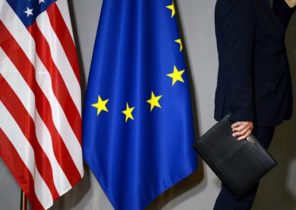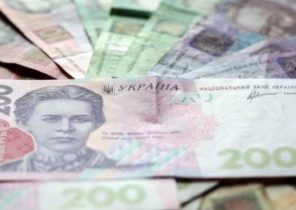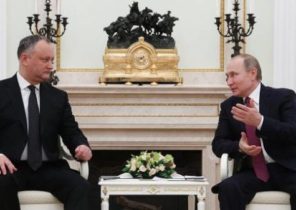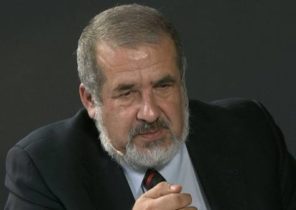
Officials try new way to stir Bank lending in Ukraine. They figured out how to solve the key problem, from-for which the financiers are refusing to lend — the problem of distrust of the borrowers resulting from total defaults on loans in 2014-2015 (defaults on loans up to 45-50% of banks ‘ loan portfolios). Bankers propose to abandon lending to businesses and people the security of property, and go to the loans under the trust property, writes UBR.
The difference between the two methods is enormous. When the Bank executes a credit purchase, say, a car secured auto, it automatically creates two co-owner — person-borrower and Bank-creditor. But if the same purchase will be formalized in a new way, the only owner of the car will be Bank. And “the iron horse” will be provided to the driver in trust — he will drive his power of attorney. Yet people completely fail to repay the loan, the car will not become his property. It will belong to the Bank. The scheme resembles a financial leasing, for many years practised our leasing companies.
This approach eliminates the possibility that the borrower secretly withdraw deposits, sell them on the side and leave the banks with nothing — this sin many legal and physical persons in recent years.
The Ministry hope that the new mechanism will allow to destroy the wall of distrust between banks and borrowers, which was erected in the midst of crisis. Because has already prepared two draft laws describing the mechanism of a trust. One introduces amendments to the Tax Code, and the second in the seven existing laws. In many respects the proposals of the Ministry to duplicate the contents of bill No. 4188, aimed at implementation of rights to trust property and was already in BP. But the fundamental difference of the project of the Ministry — the rules for the tax on operations with objects (collateral) transferred in trust.
That gives the trust property
The mechanism of trust management to minimize the risks of banks. As soon as the borrower stops paying, say, on a mortgage loan, the Bank can evict him an apartment Deposit, held in trust. Because the person does not belong to this house, he uses it as a tenant. As if I rented an apartment from private owners.
“Perhaps because of the presence of such rigid rules in the same market of leasing of cars in Ukraine, leasing and don’t became popular. Leasing in Ukraine sold about 5% of cars, while to the credit of 20-25%,” — said managing partner at Pravovest Gleb Segida.
Although the Executive Director of the Independent Association of Ukrainian banks (NABU) Elena Korobkova pfверила that the risks lenders only reduced, but not negated. “This tool does not exclude the possibility to challenge the right to property in court that may take many years of trials,” says Korobkov.
As stated in the NEB, pursuant to article 319 of the Civil code the owner has the right to use and dispose of their property at their discretion. This rule is not revised neither in the bill of deputies, nor in the project of the Ministry of economy.
What is offered
Offer of the Ministry of economy (and deputies) the amendments clarify the concept of trust, to paint what could be the object of trust (excluded securities and corporate law), when the right to the trust property arises, how to dispose of them, the consequences of breach of obligations by the debtor, the procedure for recovery of trust property and a number of other nuances.
Despite all the proposals set out on four pages only to the Civil Code (GK), financiers and юрbсты noted that they mainly introduce the General framework of the new mechanism.
The experts identified only a few aspects of protecting creditors. In the first place, said amendments providing for mandatory recovery of trust in case of bankruptcy of the debtor and liquidation of legal ownership (unless otherwise stated in the contract and will not contradict him).
“It’s many enhancing the benefits for the lender,” — said Board member and risk Director Credit Dnepr Bank Oleg Pakhomov.
Rules for mandatory collection will appear in GK and the law “On renewal of solvency of the debtor” for a while forbidden to impose a moratorium on the mandatory mortgage and the Bank to recover the collateral (object of trust).
The Bank can quickly regain the property which is in trust management, is sufficient to the borrower to defer loan payments for 20 days. But if it will be about housing — time to have even less: in 10 days after eviction notices, borrowers will be able legitimately to put on the street.
The lawyers tried to stand up for borrowers. Segida, for example, called the terms too restrictive. He feared that under such rights, banks will deny the debtors in restructurings of loans and generally will not go to meet them if you encounter temporary financial difficulties.
“This shows once again that things are farmed out to the market, the legislator gives the new tool, and there are already market participants agree. And soon after formed the practice may be amended,” said the Segid.
An important point for banks and borrowers — tax issue. Liens will not be used for repayment of the tax debt will not be considered a sale of goods that require payment of taxes. And transfers property to the trust property to the Bank, and then back again to the borrower after repayment of all debts, will not be taxed.
“The parties will bear the costs only for the services of the state Registrar with renewal of documents”, — said the Segid.
This approach, according to experts, not only allow you to enter additional fees, but will give slightly lower interest rates on loans.
The developers of the bills attempted to protect borrowers. In the case of the introduction of the Bank the temporary administration rules for the use of trust management will not change: if the borrower pays the loan, he will become the sole owner of the property. In bankruptcy it is not included in the liquidation mass.
Make and finalize
Experts believe that the bills of the trust property may be taken by the Verkhovna Rada. Although they are not yet able to ensure that the new rules immediately be applied in practice. At least when lending to the population. Under the described rules can subscribe is that enterprises expecting to decrease the interest rates on loans, experts say
“For example, mortgage lending in the coming years the Ukrainians will not begin to issue loans under the scheme of trust management. Borrowers will regard the conditions as too stringent,” — said the Segid.
And Oleg Pakhomov is confident that the new mechanism does not change the situation with defaults on loans without global reform of the judicial system, which still contains the potential for abuse.
“The reform of the judicial system and protection of creditors required political will. Last year BP failed several bills that protect the creditors. The reasons are obvious: some MPs — owners of large businesses — are themselves persistent defaulters”, — noted in the Bank “Credit Dnepr”.







